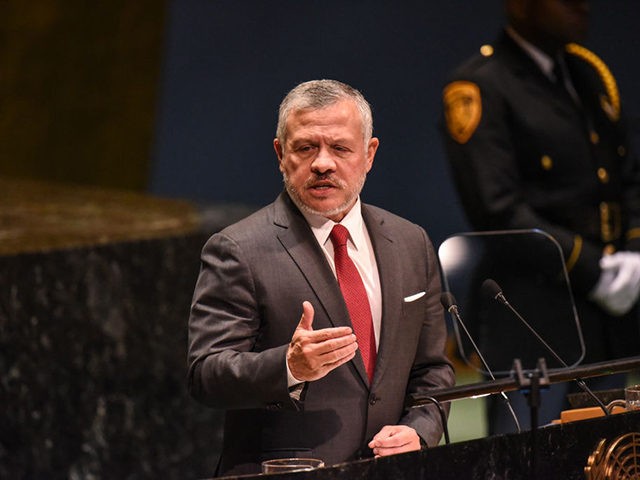Jordanian public prosecutor Hassan al-Abdallat issued an order Tuesday banning all Jordanian media outlets from reporting on the rift between King Abdullah II and his half-brother, former Crown Prince Hamza, ostensibly because any coverage of the royal dispute would jeopardize investigations of a seditious plot with which Hamza was supposedly involved.
The order was issued after Hamza signed a declaration of renewed allegiance to the king and agreed to “mediation” of his dispute with the court. The mediation will supposedly be overseen by Prince Hassan bin Talal, Hamza’s uncle and something of an elder statesman in the royal family.
Hassan, like Hamza, was once next in line for the throne, holding the position from 1965 until his brother, King Hussein, bumped him from the position in 1999 for allegedly trying to destabilize the government and set himself up to take power — largely the same offenses Hamza is accused of today.
Hussein proceeded to test Hassan’s good humor even further by dying of cancer less than a month after ending Hassan’s 34-year-run as the designated successor to the crown. The newly-designated Crown Prince Abdullah became King Abdullah II and rules Jordan to this day. Five years after taking the throne, Abdullah replaced Hamza as crown prince and designed his own son as heir.
“I place myself in the hands of his majesty the king,” said the statement of loyalty Hamza signed on Monday after meeting with Hassan. “I will remain committed to the constitution of the dear Hashemite Kingdom of Jordan.”
The letter was released to the public by the palace on Monday, but then public prosecutor Hassan al-Abdallat banned further discussion of the royal rift on Tuesday to “keep the security services’ investigation into Prince Hamza and the others secret.”
“The ban on publication involves all audio-visual media and social networks, as well as the publication of all images or video clips relating to this subject on pain of legal action,” the order stated.
Police have arrested another 16 people to date for allegedly conspiring with unnamed foreign powers to destabilize the Jordanian government. Hamza himself claimed to be under house arrest in a video smuggled to foreign media, but the government is striving not to portray him as a defendant or detainee.
Jordanians remain befuddled by the split in the normally stable monarchy. Hamza’s supporters see him as a voice of the people and suspect the king cracked down on him, arresting many of his friends and allies, to keep him from growing more popular. Hamza’s visits to coronavirus patients have been cited by Jordan-watchers as a reason for the king to conclude the former crown prince was undermining his authority by turning public opinion against the crown.
Despite Hamza’s public pledge of allegiance, the BBC judged on Tuesday that the “crisis is not over yet.”
“Many holes in the alleged plot remain. The identities and ambitions of all people detained have not been made public. Nor is it clear which foreign entities may have wanted to destabilize the kingdom. Whatever happened was serious enough for Jordan’s allies and neighbours, including other Arab monarchies, to race to express full support for King Abdulla,” noted BBC analyst Lyse Doucet.

COMMENTS
Please let us know if you're having issues with commenting.